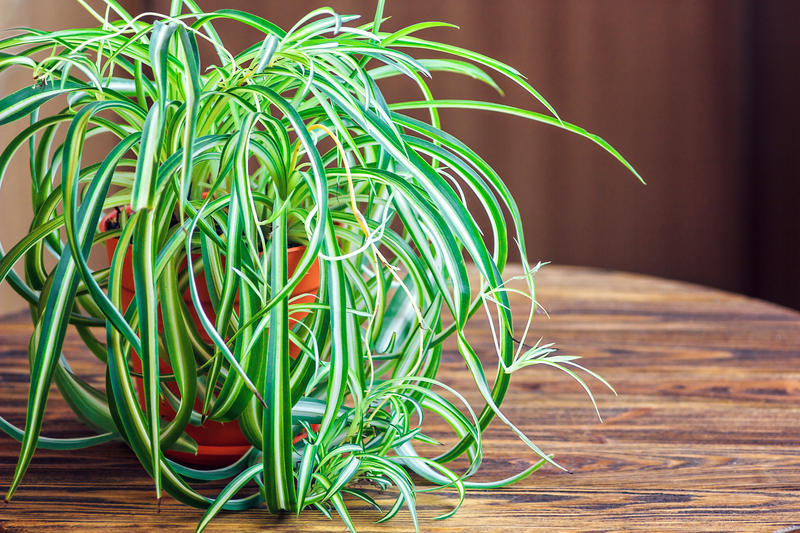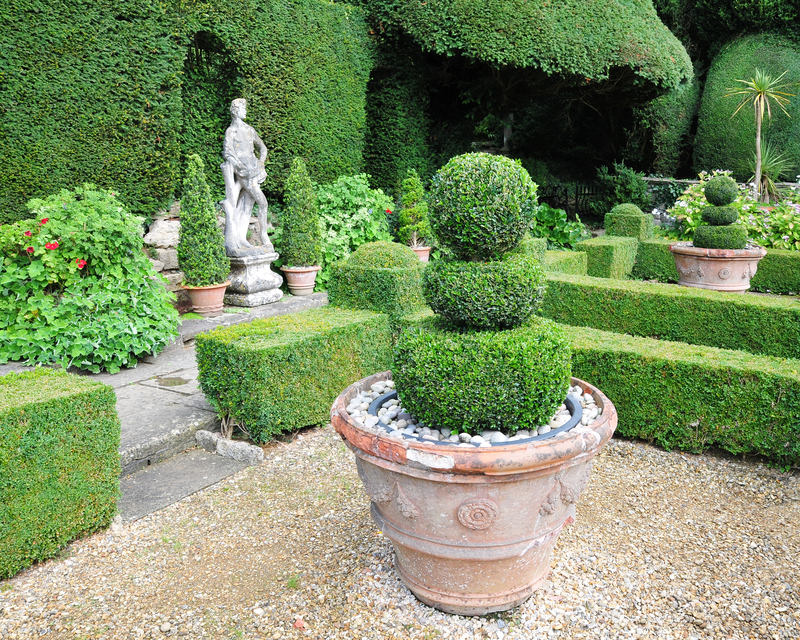Elevate Your Gardening Game with 9 Essential Tips for Novices
Posted on 29/06/2025
Elevate Your Gardening Game with 9 Essential Tips for Novices
Are you ready to transform your outdoor space and nurture your green thumb? Elevating your gardening game doesn't have to be daunting, especially if you're just starting out. With the right guidance, even a novice can blossom into an expert gardener. In this comprehensive guide, we share 9 essential tips for beginners to help you cultivate a flourishing garden. Get ready to roll up your sleeves and watch your garden thrive!
Why Gardening Is a Rewarding Pursuit for Novices
Gardening is more than just a hobby--it's a form of therapy, a creative outlet, and a sustainable way to connect with nature. When you start a garden, you're enriching your home with beauty, boosting your mental health, and even growing delicious food. If you're a beginner, the right approach can help you avoid common mistakes and enjoy long-term success.
- Promotes relaxation and mindfulness
- Improves air quality and environment
- Offers opportunities for physical activity
- Provides fresh produce and flowers

9 Essential Tips to Elevate Your Gardening Game
Whether you have a sprawling backyard or a compact balcony, these actionable tips will give your garden the foundation it needs to flourish. Ready to enhance your gardening skills? Let's dive in!
1. Start Small and Plan Your Space
Ambition is great, but starting with a manageable garden will help reduce overwhelm. Novices should begin with a few raised beds or container gardens before expanding.
- Assess sunlight: Track how much sun your desired garden spot receives daily.
- Measure your space: Determine the square footage you can dedicate to your garden.
- Choose easy plants: Opt for herbs or leafy greens that are forgiving and quick to grow.
Planning not only makes tasks easier but also ensures that you make the most of your available space and resources.
2. Understand Your Soil
Soil is the foundation of every successful garden. Get to know your soil's pH, type (sandy, clay, loam), and nutrient levels.
- Test your soil: Kits are inexpensive and help you adjust nutrients accordingly.
- Add compost: Organic matter boosts fertility and water retention.
- Adjust drainage: Amend soil with sand or peat moss if necessary.
A little effort spent on your soil now pays off substantially in the long run.
3. Choose the Right Plants for Your Climate
Not all plants thrive in every region. Select plants suited to your local climate and hardiness zone for best results.
- Consult the USDA Hardiness Zone map: Find your zone and pick plants accordingly.
- Ask at your local nursery for region-specific recommendations.
- Consider native plants--they require less maintenance and are more resistant to local pests.
4. Practice Proper Watering Techniques
Watering can make or break your gardening journey. Many novices overwater or underwater their plants, leading to stunted growth or root rot.
- Water deeply but less frequently: Encourage roots to grow deeper and stronger.
- Water early in the day to prevent evaporation and mildew.
- Use mulch: Retain moisture, suppress weeds, and regulate soil temperature.
5. Learn When and How to Fertilize
Plants need nutrients at different stages. Apply fertilizer based on your plants' needs and growth cycle.
- Use organic fertilizers like compost, manure, or fish emulsion for a sustainable approach.
- Feed plants at the beginning of growing season and during active growth periods.
- Follow package instructions to avoid fertilizer burn.
6. Master the Art of Mulching
Mulch is an unsung hero in gardening. It conserves moisture, regulates soil temperature, prevents weed growth, and adds organic matter as it breaks down.
- Organic mulches (bark, straw, leaves) are best for beginners.
- Apply 2-3 inches around plants, but don't pile against stems to avoid rot.
- Replenish mulch as needed throughout the season.
7. Embrace Integrated Pest Management (IPM)
Pests are inevitable, but chemical pesticides aren't your only option. Integrated Pest Management (IPM) combines prevention, monitoring, and control for healthy plants and a balanced ecosystem.
- Attract natural predators like ladybugs and birds with flowering plants.
- Handpick pests or use barriers (netting, row covers).
- Apply organic treatments like neem oil or insecticidal soap only when necessary.
8. Stay Consistent with Maintenance
A little attention goes a long way. Make a schedule for weeding, deadheading, and staking plants to keep your garden tidy and healthy.
- Remove debris regularly to avoid disease.
- Prune shrubs and perennials to encourage growth.
- Keep an eye on plant health and act quickly if you spot problems.
9. Keep Learning and Experimenting
Gardening is a journey--embrace the learning curve! Join gardening forums, subscribe to magazines, and experiment with new species each season to discover what works best in your space.
- Document your experiences in a garden journal.
- Attend local workshops or community gardening events for hands-on knowledge.
- Don't be discouraged by setbacks--even the most seasoned gardeners face challenges.
Common Gardening Mistakes Novices Should Avoid
As you elevate your gardening experience, be aware of pitfalls that can trip up beginners:
- Overplanting: Crowding reduces air flow and increases disease risk.
- Ignoring plant labels: Every plant has unique spacing and sunlight needs.
- Neglecting regular checks: Prevent infestations and disease by inspecting your garden often.
- Failing to amend soil: Replenish nutrients annually for ongoing plant health.

Essential Gardening Tools for Beginners
Having the right tools simplifies tasks and guarantees better results. Here are must-have gardening tools for those just starting out:
- Spade or shovel
- Hand trowel
- Pruning shears or scissors
- Gardening gloves
- Watering can or hose with a spray nozzle
- Garden fork
- Rake
- Kneeling pad for comfort
Final Thoughts: Your Path to a Flourishing Garden
The journey to elevating your gardening game comes down to patience, observation, and a willingness to learn. Remember, every seasoned gardener was once a beginner. With these nine essential gardening tips, you'll build a foundation for success, create a beautiful outdoor retreat, and enjoy the countless rewards gardening brings.
Are you ready to dig in? Put on your gloves, grab your tools, and let your gardening adventure begin! For more gardening advice and inspiration, bookmark this page and revisit anytime you need a helpful tip.
Frequently Asked Questions
- What plants are best for first-time gardeners?
Herbs (like basil and parsley), lettuce, marigolds, and tomatoes are easy and rewarding choices. - How often should I water my garden?
Most gardens need about 1 inch of water per week. Check soil moisture regularly. - When's the best time to plant?
Typically, after the last frost in spring--always read seed packets and plant labels for specifics.
Level up your garden with these tried-and-true gardening tips for novices. Share your progress and questions in the comments below--your garden journey is just beginning!

